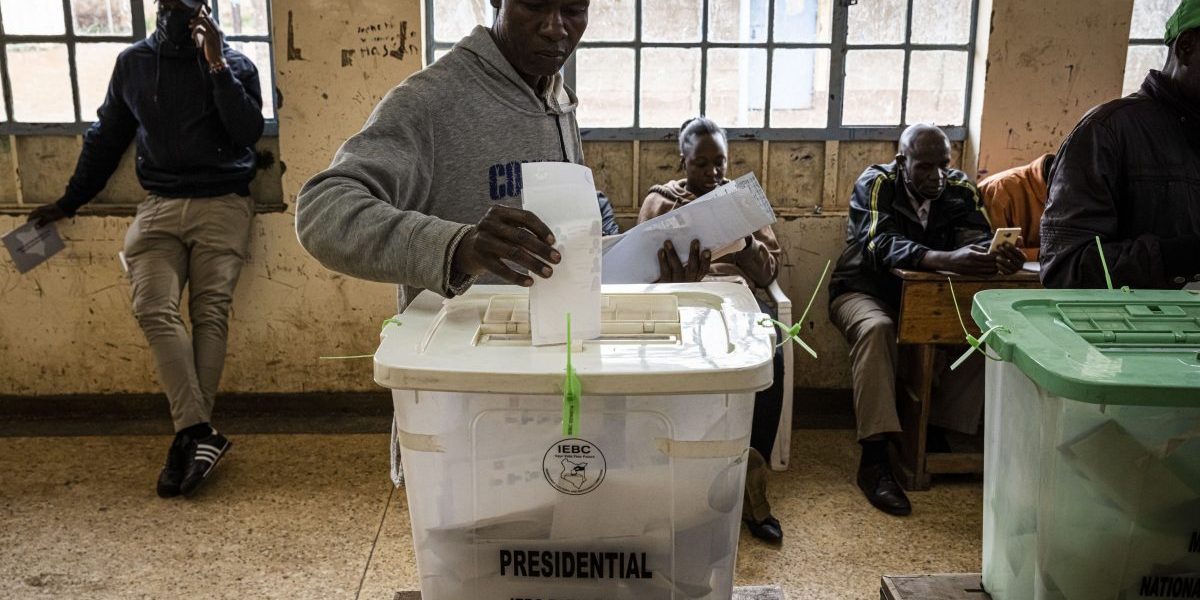When Senegalese President Macky Sall announced early in February that the country’s elections would be delayed, the decision was shortly followed by an internet blackout. Civil society groups in the country have now mounted a lawsuit against the government’s internet shutdowns in the Community Court of Justice of the Economic Community of West African States. With more than 60 countries set to stage elections, 2024 has been dubbed the biggest election year in history. More than ever before, open and accessible internet will be central to citizens’ ability to participate in upcoming presidential, legislative and local elections.
The introduction of the internet was expected to lead to a new wave of democratisation. However, in the last two decades, there has been a growing trend towards internet censorship. Freedom House’s annual report on internet freedom found that global internet freedom declined in 2023 for the 13th consecutive year. One of the ways that internet freedom is increasingly curtailed is through internet shutdowns. Since 2016, internet shutdowns have become an increasing phenomenon and elections are one of the primary causes attributed to these disruptions. Governments across the globe shut down the internet 124 times in 2023, restricting millions of people’s access to the internet.
Internet shutdowns during elections are detrimental to democracy, and signify a dangerous disregard for human rights, the democratisation process, and the principles of effective governance. When governments shut down the internet during elections, they prevent citizens from fully exercising their rights to access information and hold authorities accountable.
Internet shutdowns occur in two main forms: throttling and kill-switch. Throttling refers to the deliberate slowing down of internet connection speeds and has also been identified as an alternative tactic used by governments in lieu of a ’kill-switch shutdown’, in which access to the internet is blocked entirely. Governments utilise internet shutdowns as a tool to maintain power and ensure their political survival, and a government’s power and political survival are arguably most vulnerable during an election.
As the regions most affected by internet shutdowns, sub-Saharan Africa and South Asia are particularly vulnerable to election-related internet disruptions. Countries with a history of imposing internet restrictions during elections include Mali, Malawi, Chad, Mauritania, India, Iran, Pakistan, and Bangladesh. India has been a global leader in internet shutdowns, experiencing an estimated 298 internet blackouts since 2015, with its longest shutdown occurring from May to December last year in Manipur. India´s 2023 shutdowns alone affected 59.1 million people and cost the country approximately $585.4million. Both India and Iran have imposed internet restrictions during elections in the past and are set to hold parliamentary elections this year. India´s attempts to introduce new surveillance measures such as drones and facial recognition technologies to monitor its election processes is already a source of concern.
During its election day on 8 February, Pakistan suspended telecommunications and mobile internet services, justifying the decision as a measure to safeguard against security threats following three bombing incidents. However, opposition candidates and members of the public criticised the shutdown as breach of people’s human rights. The disruption of internet services restricted access to critical information as people headed to the polling stations in the aftermath of bomb blasts. Mustafa Nawaz Khokhar, an independent candidate from Islamabad said, “Shutting down mobile networks on polling day is the beginning of election day rigging. Pre-poll environment was already one of the worst in Pak’s history… How’s one supposed to keep a check and highlight any irregularity? By the time news comes out the election would have been stolen”.
The increasing implementation of internet shutdowns in Senegal also raises concerns regarding media freedom and freedom of expression. In 2023, Senegal experienced several internet shutdowns amidst protests against electoral irregularities and government corruption. Following President Macky Sall’s announcement of the postponement of elections from February to December, mobile internet was disrupted in Senegal. The internet shutdown followed as President Sall passed a bill extending his rule until December, when elections may be held. This decision was met with public outcry and following the rejection of the bill by the Constitutional Council, President Sall has said that elections will take place soon.
As internet shutdowns continue to threaten freedom of expression and access to information, there is a growing need for international intervention. Last year, the Freedom Online Coalition, which consists of 38 governments, condemned internet shutdowns and network disruptions during elections. The joint statement, issued during the annual United Nations Internet Governance Forum, adds to mounting global pressure to end internet shutdowns. It also highlights the need for inter-regional cooperation action to continue to raise awareness on the detrimental impact of internet shutdowns, particularly during elections. It is crucial that citizens living in countries where shutdowns are a risk prepare ahead of upcoming elections, ways to stay online during an election including using Virtual Private Networks (VPNs) and international sim cards.
Ultimately, a government’s decision to disrupt the internet during an election indicates how much it values the principles of democracy. With an estimated 4 billion people voting in upcoming elections this year, democracy is set to face its biggest test yet.








